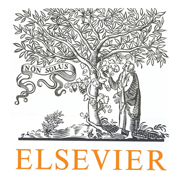دانلود ترجمه مقاله نقش قابلیت انعطاف راهبردی در نسبت بین دانش و نوآوری
| عنوان فارسی |
نقش قابلیت انعطاف راهبردی در نسبت بین دانش و نوآوری: مطالعه یک بازار نوظهور |
| عنوان انگلیسی |
Importance of Strategic Flexibility on the Knowledge and Innovation Relationship: An Emerging Market Study |
| کلمات کلیدی : |
انعطاف پذیری استراتژیک؛ مدیریت دانش؛ نوآوری؛ بازارهای نوظهور |
| درسهای مرتبط | مدیریت دانش |
| تعداد صفحات مقاله انگلیسی : 7 | نشریه : ELSEVIER |
| سال انتشار : 2016 | تعداد رفرنس مقاله : 34 |
| فرمت مقاله انگلیسی : PDF | نوع مقاله : ISI |
|
پاورپوینت :
ندارد سفارش پاورپوینت این مقاله |
وضعیت ترجمه مقاله : انجام نشده است. |
1. مقدمه 2. بررسی مقالات و توسعه فرضیات 3. روش تحقیق 4. نتایج 5. بحث و بررسی و نتیجه گیری

بحث و نتیجه گیری: این تحقیق بدنبال توسعه درک ما از نحوه تاثیر انعطاف پذیری استراتژیکی بعنوان عامل زمینه ای بر رابطه بین مدیریت دانش و عملکرد نوآوری شرکتها می باشد. نتایج نشان می دهند که انعطاف پذیری باعث رابطه مثبت بین KMS و قوی تر شدن عملکرد نوآوری می شود. انعطاف پذیری استراتژیک باعث ارتقاء کاربرد انعطاف پذیر و هماهنگی منابع جهت پشتیبانی از مهارتهای مدیریت دانش شده و تصمیم گیری سریع نیز شرکت ها را به شبیه سازی و استفاده بهتر از اطلاعات جدید، خلق پیکربندی جدید محصول و حرکت سریع به سمت بازار جدید قادر می سازد (Matthyssens, Pauwels and Vandenbempt, 2005; Zhou and Wu, 2010). بدین منظور، انعطاف پذیری استراتژیک با تغییر یا بهینه سازی کاربرد منابع دیگر به هنگام پشتیبانی از مهارتهای مدیریت دانش، تاثیر مثبت دانش را قوی تر می سازد. بنابراین، انعطاف پذیری استراتژیک نوعی قابلیت پویا می باشد که شرکتها را به دستیابی به پتانسیل مهارتهای مدیریت دانش قادرمی سازد (Zhou and Wu, 2010, p. 558). این یافته با تعهد شرکتهای ترکیه برای افزایش سرعت و محدوده اقدامات استراتژیکی آنها ازطریق سطح بالای انعطاف پذیری استراتژیکی در محیط پرتلاطم کسب و کار همسو می باشد، طوریه اغلب شرکتها می توانند با یافتن راه حلهای فردی برای مسائل غیرمنتظره و پیش بینی نشده، اتخاذ استراتژیهای جایگزین یا اصلاح مواد موجود دوام آورند. زمانیکه تمام قابلیت های پویا باهم تعامل دارند، سینرژی قوی تر منجر به عملکرد بهتر می شود. این یافته با طرح مربوط به چشم انداز قابلیت های پویا سازگار است و نشان می دهد که تاثیر قابلیت پویا مشروط به قابلیت دسترسی و انعطاف پذیری دیگر منابع و قابلیت ها بوده و از طریق اثرات سینرژیستیک که بعنوان نتیجه تعاملات پیچیده منابع و قابلیت ها ظهور می شود، منابع جدید را می توان برای عملکرد بهتر شرکت ها خلق کرد. در نتیجه، این تحقیق نشان داد اثربخشی قابلیتهای فرایند دانش که به عملکرد نوآوری در بازارهای پویا منجر می شود، مشروط به قابلیت پویای دیگر است که انعطاف پذیری استراتژیک می باشد.
Discussion and Conclusion: This research seeks to extend our understanding on how strategic flexibility as a contextual factor can affect the relationship between knowledge management and innovation performance of firms. The results show that strategic flexibility makes the positive linkage between KMS and innovation performance stronger. Strategic flexibility promotes the flexible use and coordination of resources to support knowledge management skills and quick decision making thereby enables firms to assimilate and use new information better, create more new product configurations and move readily to new markets (Matthyssens, Pauwels and Vandenbempt, 2005; Zhou and Wu, 2010). In this sense, strategic flexibility makes the positive impact of knowledge stronger on innovation performance by shifting or optimizing the use of other resources on the way of supporting knowledge management skills. Thus, strategic flexibility “appears to be one type of dynamic capability that enables firms to achieve the potential of their knowledge management skills” (Zhou and Wu, 2010, p. 558). This finding was consistent with the obligation of Turkish firms to increase the speed and scope of their strategic maneuvering actions through a high level of strategic flexibility in the turbulent business environment where most of the firms could survive by finding idiosyncratic solutions to unpredicted and unexpected problems, adopting new alternative strategies, or modifying the existing ones. When all dynamic capabilities worked together, a stronger synergy resulting to better performance was created. This finding is consistent with the proposition of dynamic capabilities view which suggests that the efficacy of a dynamic capability is contingent to the availability and flexibility of other resources and capabilities and thereby through the synergistic effects that emerge as a result of the complex interactions of resources and capabilities, new resource bundles can be created for better firm performance. As a result, this study found that the effectiveness of knowledge process capabilities leading to innovation performance in highly dynamic markets were contingent to another dynamic capability that was strategic flexibility.



دیدگاهها
هیچ دیدگاهی برای این محصول نوشته نشده است.